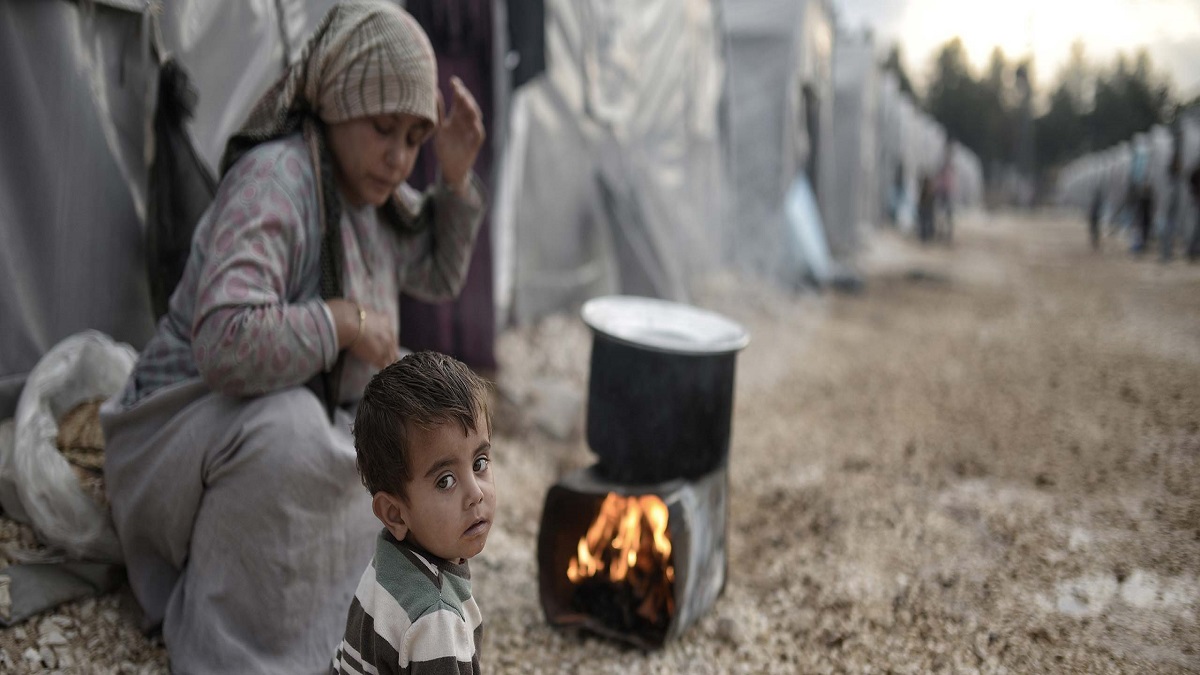“As you enter the housing complex, which was once used for university students, you can see that the bitterness of war has made it unfit for habitation. Displaced people from Ghouta and the northern Homs countryside have no money and are left with no other choice by to use this building. When you enter you can see the sewage spewing out and a room that has nothing suitable for human habitation. Seeing this, you are filled with depression, sadness and illness.”
In a message to Ana Press, Khalid Mohsen Abou Saeed, 49, pleaded for assistance for him and his family. He appealed to the world to help those living in these rooms. They are people who have lost all their money, possessions and even their dreams.
“There is sewage in the corridors between the rooms. These families cannot live in a better place. Rental prices for houses are too high. There is no work, and the children’s illnesses are getting worse every day because of the filth that surrounds the area and the lack of cleanliness and services,” said Abou Saeed.
“Families, some with small children, who have been looking for a place to live, have been forced to shout, so the world can hear their cries. The buildings they live in have no windows or doors and the wind blows through. The is no protection from the winter cold, and nothing to provide them with any safety. The children cry out for help as they struggle with the increasingly difficult circumstances.”
Abou Saeed, who lives with his family of five in the university residence, in a room surrounded by sewage, spoke with Ana Press, saying that the residence was not fit for human habitation, as the sewers were “exploding” and water and filth was flowing through the building. Aid groups even entered and inspected the place, but made no offer of help. As winter approaches, bringing with it the cold and the rain, life has become more difficult and disease has struck many of the people, young and old, living there. There is no escape and nowhere to go.
He added: “Most of the aid groups which the people have turned to have said that they are waiting for approval for service projects and programs, and that they cannot operate no matter how bad the current situation gets. The children’s clothing is worn, their eyes are sad and their thoughts are confused. Mothers and fathers are constantly thinking of how to find solutions for a better life and to get out of poverty and secure assistance. But the war is always in front of them. Displacement and flight have put them back to zero and forced them to crash into a new life, in a new place and a new community with different traditions.”
It is one of the scenes of suffering and poverty that has afflicted many Syrians, now coinciding with International Day for the Eradication of Poverty. UN statistics released in 2016, have revealed that 83 percent of Syrians are now living under the poverty line.
This article was translated and edited by The Syrian Observer. Responsibility for the information and views set out in this article lies entirely with the author.


